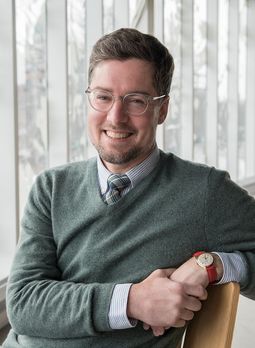
Open Science: Deconstructing Knowledge for a More Just Society
Reducing systemic disparities is essential to bringing about a change in university culture and enabling community members to be inclusive stakeholders in citizen science. This scientific position must be known and then embodied from the beginning of the PhD course.
In November 2021, the United Nations Educational, Scientific and Cultural Organization (UNESCO) adopted its Open Science Recommendation. This concept is not new, but in its recommendation, UNESCO proposes a preliminary definition developed at the international level.
Open science is defined as an overarching concept that aims to make scientific knowledge accessible and reusable; Promote collaboration and exchange of data for the benefit of science and society; and open the processes of creating, evaluating, and disseminating knowledge outside the restricted circles of the scientific community. The UNESCO Open Science Recommendation articulates a common set of values – such as quality, integrity, diversity and inclusion – and guiding principles including transparency, reproducibility and sustainability.
Advancement of knowledge rather than competition
Vincent Lariviere, Professor at the Faculty of Library and Information at the University of Montreal and Director of the UNESCO Chair in Open Science
Credit: Amelie Philibert | University of Montreal
Among the values underlying open science is the collective interest, as put forth in the recent context of the COVID-19 pandemic. Vaccine production has been accelerated thanks to scientific cooperation between countries, whose production processes are normally subject to competition and a patent race. This scientific position is particularly important in confronting the planetary problems of our time and must be taken into account from the beginning of the postgraduate research programme.
According to Vincent Larivière, Professor in the University of Montreal’s School of Library and Information Sciences and Director of the newly created UNESCO Chair in Open Science at UdeM, a person with a PhD cannot imagine a career in research without the knowledge and commitment to it. Principles of open science. “These principles have become the norm in many areas and their application in some cases is mandatory for some donor agencies,” he says.
By the same token, universities should encourage researchers more to adopt a collegial approach to their work, and to promote data sharing and reuse, rather than simply evaluating the number of publications. Vincent Larivière adds: “There are many misconceptions about open science within the research community. The main thing is that you have to pay for open access for scientific articles, which is not true. Almost all journals allow articles to be deposited in institutional and disciplinary archives.”
The university contributes
In order to achieve the objectives set forth in its recommendation, UNESCO requests Member States to take concrete measures at several levels in seven areas of action to establish open science in a fair and equitable manner.
The fourth work area targets the institutional level: “Investment in human resources, training, education, mastering digital tools, and capacity building in the service of open science,” can we read. More specifically, it is recommended that universities incorporate a core set of open science-related skills into all postgraduate research programmes.
Open Science Summer School
In addition to his activities in the UNESCO Chair on Open Science, Vincent Larivière collaborates on a summer school for doctoral and postdoctoral students on open science organized as part of the Les saisons des SP professional development programme. Participants will have the opportunity to understand the benefits of open science at the doctoral level and research in general and to participate in the experience of scientific collaboration.
Open science deserves to take an increasing place in the research pathway at the postgraduate level. Ultimately, as stated in Article 27 of the Universal Declaration of Human Rights, promoting better accessibility and increasing the transparency of science also means defending the fundamental right of everyone to participate in scientific progress and share the resulting benefits.
To find out more about the University of Montreal’s PhD and Postdoctoral and Postdoctoral Summer School on Open Science: saisonsesp.umontreal.ca/activites/ecole-dete-doctorale-et-postdoctorale-2023/.

“Organizer. Social media geek. General communicator. Bacon scholar. Proud pop culture trailblazer.”

